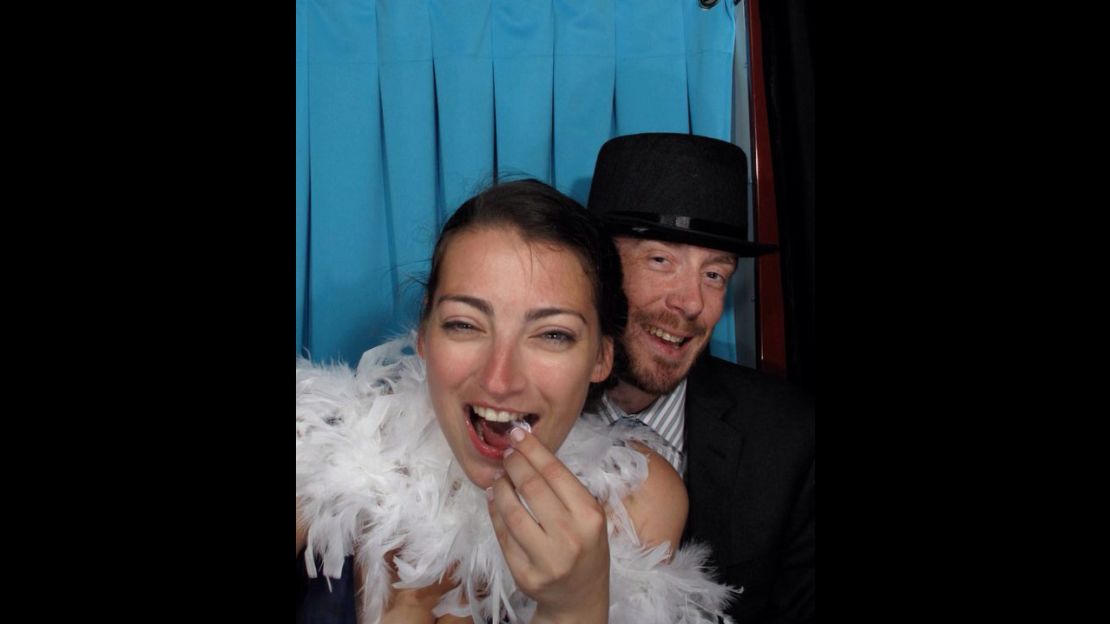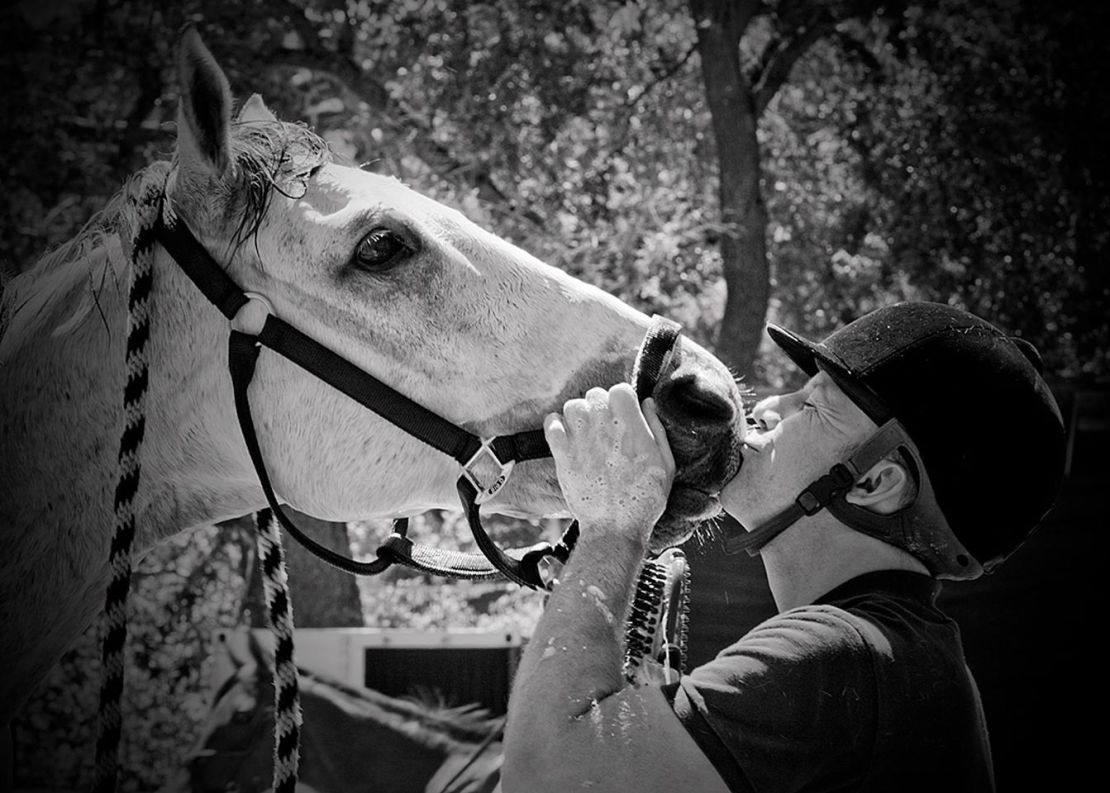Story highlights
Unmarried companions also face devastation at the loss of partners
Grief experts: Others shouldn't minimize pain by labeling such relationships as less important
Mourners can reclaim a ritual or place to connect to the deceased while moving forward
When Chris Doheny met Sarah Fox, he was uncharacteristically hopeful about the future – a successful double lung transplant in June 2010 to help with his cystic fibrosis meant things were looking up, Fox says.
She was also hopeful; Fox had recently been on the “the worst Internet date of all time” when she met the Georgetown University grad at a concert through mutual friends.
But after two years of dating Fox, Doheny, 31, died in February 2013 due to complications from cystic fibrosis.
“We had talked about a future, and I think that Chris knew more than I did that we didn’t have one,” Fox says. “I was maybe a little naïve.”
Fox has one word to describe Doheny’s death: devastating.
Unmarried companions can face the same grief and desolation that a husband or wife does at the loss of a partner. But the suffering of a girlfriend or boyfriend may be minimized by others, who assume it shouldn’t last so long or hurt so deeply – as in, “Well, he was only your boyfriend.”

Fox says the “girlfriend” label has been a particular struggle after Doheny’s death: “What do I call him now? He’s not my ex-boyfriend because we never broke up, but he’s also not my boyfriend.”
Fox recalls a co-worker telling her: “At least now you can move on and find someone else.”
Nancy Berns, a sociology professor at Drake University and author of “Closure: The Rush to End Grief and What It Costs Us,” advises against starting any statement of sympathy with “at least.”
“They think they’re trying to help by minimizing the pain, but it doesn’t affirm that you’re hurting – and that I respect that you’re hurting,” Berns says.
During Doheny’s period of declining health, Fox sought out a grief counselor who specialized in dealing with a spousal death as the best viable option – a step, she calls, “extremely helpful” as “it was very stressful to watch him deteriorate.”
Berns says grief is a normal, healthy response to a loss no matter the relationship, and things get murky if the depth of grieving becomes connected to how long a relationship endured or whether it was legally binding.
She added that our culture also needs to eliminate the notion that grief ends. What’s more helpful is learning to live with a loss: “Grieving helps us identify what we lost and express the love that we had.”
Losing a unmarried partner in the public eye can mean a greater level of scrutiny and a heightened set of expectations. The public wonders how a celebrity will respond to such a loss – recent examples include Lea Michele after the death of her boyfriend and “Glee” co-star Cory Monteith and Mick Jagger and deceased fashion designer L’Wren Scott.
In her first televised appearance after Monteith’s death, Michele dedicated her Teen Choice Award to him.
“For all of you out there who loved and admired Cory as much as I did, I promise that, with your love, we’re going to get through this together,” she said through tears.
Berns says the heightened attention happens in part because other people’s pain is uncomfortable, even taboo. We want a clean, clear statement about the loss and reaction from the surviving half of a well-known couple to sew up the narrative. Instead of trying to hurry the grieving process up or tiptoe around it, the public should allow people to grieve and speak in their own time.
There are practical matters, too. Some unmarried partners leave clear instructions on how to include loved ones in family decisions after their passing, such as a last will, while some do not. The latter can leave a boyfriend or girlfriend adrift.
Berns notes it is helpful for a grieving partner when the family allows him or her in on decisions such as funeral planning. She advises those who have lost a partner to make clear early on they want to be included in honoring their loved one.
Fox says she had a good relationship with Doheny’s parents and was able to help with his memorial. The couple had bonded over their love of reading, and Doheny left behind an unpublished novel. So Fox helped establish the Christopher Doheny Award at the New York Mercantile Library’s Center for Fiction, which is granted to a writer who has dealt with a life-threatening illness firsthand or via a close relative or friend.
Sometimes it helps to hold onto a tangible piece of a relationship.

In September 2011, Allen “Skip” Haughay Jr. and his horse Regal Bull were fatally struck by a pickup on the way to a party a half-mile away from his farm – leaving behind his partner of almost three years, Abel Urbina.
The two weren’t married. They wanted to wait for Proposition 8, a voter-approved ballot measure that made same-sex marriage illegal in California, to be overturned. Haughay did not have a will, so his assets went to his mother, who did not want to keep the ranch that her son had filled with horses, pigs and donkeys.
A few months before his death, Haughay was diagnosed with gastrointestinal cancer and said he wanted Urbina to take care of the animals should he die.
Urbina ended up selling his place in downtown San Jose, California, and buying Haughay’s three-acre property in nearby Morgan Hill – along with all the animals – to honor that wish.
“And they’re still there, they’re still happy,” Urbina says.
Berns, the sociologist, says if you can embrace or reclaim a ritual or special place, such as the farm, it’s a way of feeling connected that’s more active than just sitting alone, being sad.
For Fox, that meant carrying a tiny portion of Doheny’s ashes along the Camino de Santiago, a 500-mile hike through Spain and France. As his health deteriorated, Doheny asked her to take his ashes along on the trek after he passed away because he regretted not being able to travel with her more.
Berns says that moving forward – whether entering a new relationship or just going out and having fun again – is honoring the deceased loved one.
Urbina says since he and Haughay weren’t married, people had more gumption to ask when he would date again.
“You have to move on when you’re ready to move on,” he says. “I need to move on because, knowing Skip, he would not have wanted me to curl up in a ball and cry for a whole year and be miserable.”
Fox says she and Doheny only broached the subject once.
“It was really hard for Chris,” she says. “He obviously wanted me to be happy, but he really wanted it to be with him.”
Have you dealt with the loss of a partner? Share your thoughts in the comments, on Twitter @CNNLiving or on CNN Living’s Facebook page.









